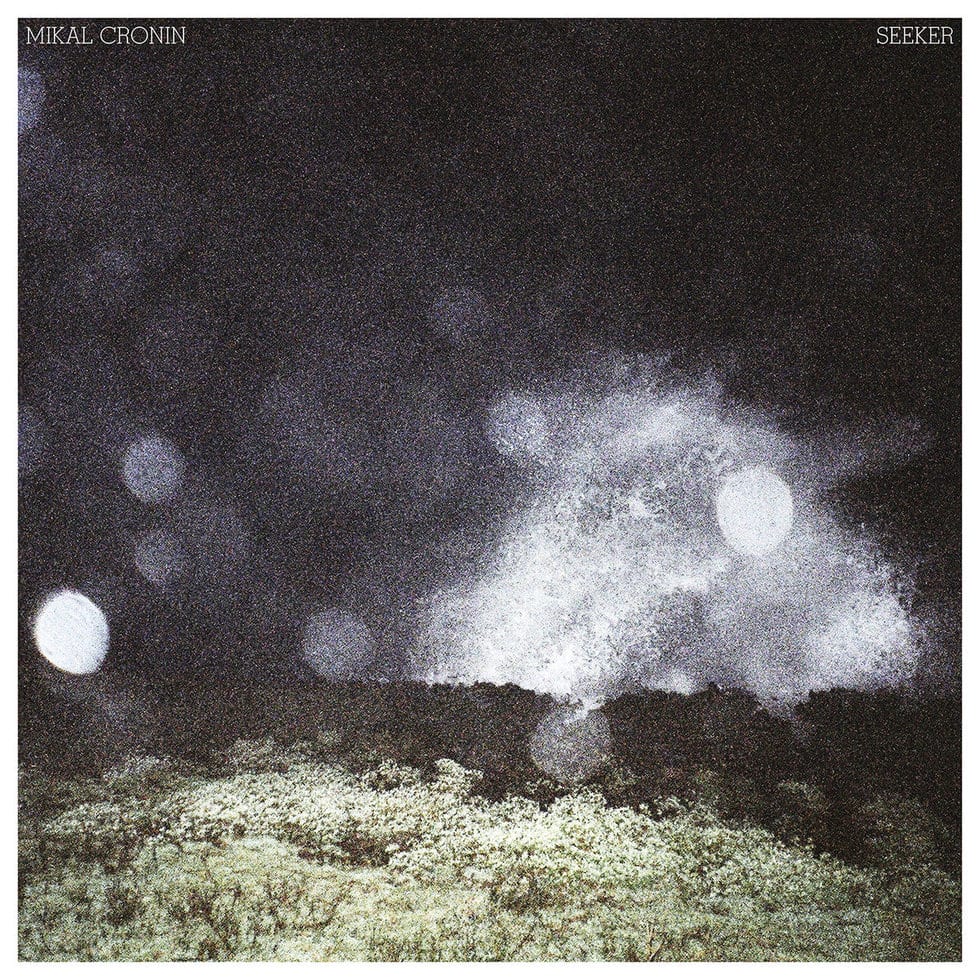
After his trilogy of solo albums and some time playing with Ty Segall, Mikal Cronin must have been ready for a change. He left the garages of California for a cabin in Idyllwild, California, with the time and isolation to overcome any lingering writer’s block and to find his way to something new. The plan sort of worked. Cronin came up with new sounds and a strong set of songs, but an arson-sparked wildfire drove him from his retreat after just a month. The evacuation hardly slowed him down, as he returned to normal life and put together Seeker, marking a nice shift in songwriting for him.
From the opening moments, Cronin presents a more complex sensibility. “Shelter” begins with toms leading the way; Cronin’s guitar must respond to the rhythms the rest of the way. The song never drones, but neither does it build into a traditional pop structure, falling somewhere in between, all heightened by a string section. “A seeker always finds an answer,” Cronin sings. “It may not be the one you want.” Cronin does seek on this record, and “Shelter” sets that exploratory tone well.
The rest of the disc twists his retro perspective. Cronin’s long been part of the West Coast garage sound, but on Seeker, he turns more toward classic rock as an influence. “Show Me” opens with a riff startlingly similar to Tom Petty’s “Mary Jane’s Last Dance”. It veers away from that song by the time Cronin reaches the chorus, but Petty still makes for a good marker. Much of the backing on this album comes from Segall’s Freedom Band, but they lean into Cronin’s vision rather than doing what fans might expect from them.
Cronin has spoken on the influence that the Beatles’ White Album had on his most recent work, but that line’s a bit of a misdirection. It speaks more to the recording sense required rather than the album itself. Seeker coheres more, and rarely feels like Liverpool. Cronin takes much of his influence from just a little later as if he’d listened to 1970s radio. “I’ve Got Reason” makes an interesting exception. It only drifts back as far as 1990s alt-rock but interweaves some Beatles-style guitar lines. You might leave it wishing Archers of Loaf would cover “Dear Prudence”.
Fire provides fitting imagery for the record, as Cronin speaks of both its destructive potential and its power in rebirth. Cronin finds himself in that period right now. There’s no need to recreate himself fully, but he does move into the next iteration of his art. It doesn’t show up fully formed, though. The center here should provide confidence, but Cronin sticks close to it. There’s some risk it moving into this sound, but little risk within it. We get saxophones, but they could be more unhinged. Cronin could vary his tempos more.
On Seeker, we get a solid album from a talented musician, but it feels more like the groundwork for a classic. Hopefully, that one’s imminent (and arson-proof).

